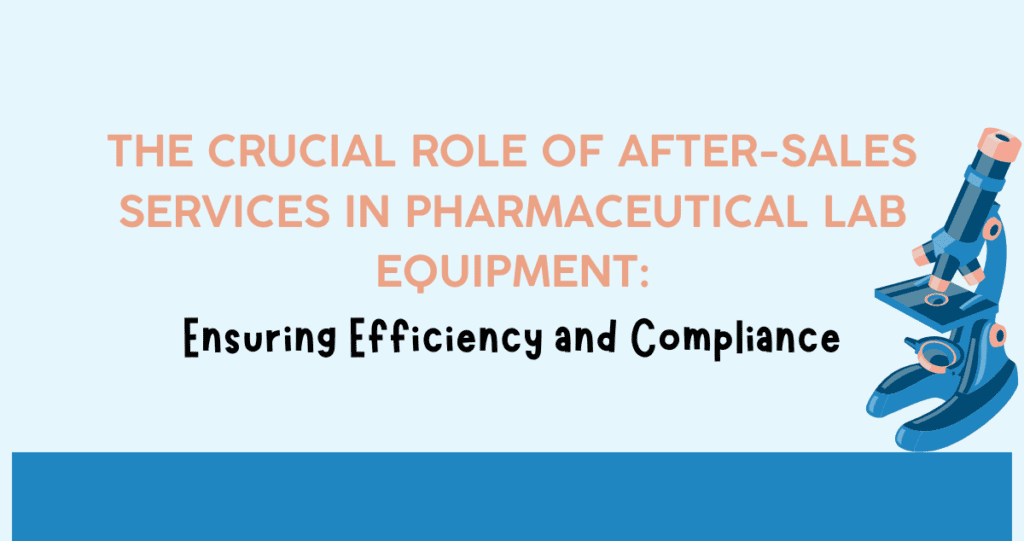
Ensuring Efficiency and Compliance
In the fast-paced and highly regulated world of pharmaceutical research and production, the importance of reliable lab equipment cannot be overstated. Beyond the initial purchase, the provision of comprehensive after-sales services plays a pivotal role in maintaining the functionality, accuracy, and compliance of pharmaceutical lab equipment. Let’s delve into why after-sales services are essential in this critical industry.
1. Maximizing Equipment Performance and Longevity:
Pharmaceutical lab equipment is often complex and sophisticated, requiring regular maintenance and calibration to ensure optimal performance. After-sales services such as preventive maintenance, calibration checks, and repairs help identify and address any issues promptly, maximizing equipment uptime and longevity. This proactive approach minimizes the risk of unexpected breakdowns and costly downtime, allowing pharmaceutical labs to operate smoothly and efficiently.
2. Ensuring Regulatory Compliance:
Compliance with regulatory standards, such as Good Laboratory Practice (GLP) and Good Manufacturing Practice (GMP), is paramount in the pharmaceutical industry. Failure to comply with these regulations can result in serious consequences, including product recalls, fines, and damage to reputation. After-sales services often include validation, qualification, and documentation support to ensure that lab equipment meets regulatory requirements. This helps pharmaceutical companies maintain compliance, uphold product quality, and mitigate risk throughout the production process.
3. Minimizing Disruption to Operations:
In a high-pressure environment like pharmaceutical research and production, any disruption to operations can have significant repercussions. Prompt and reliable after-sales support is essential for addressing technical issues swiftly and minimizing downtime. Service agreements that offer priority response times, remote troubleshooting, and on-site support ensure that any disruptions are resolved quickly, allowing labs to stay on schedule and meet project deadlines effectively.
4. Facilitating Staff Training and Knowledge Transfer:
Effective utilization of lab equipment requires proper training and ongoing support for laboratory personnel. After-sales services often include training programs tailored to the specific equipment, covering operation, maintenance, and troubleshooting procedures. By investing in staff training and knowledge transfer, pharmaceutical companies empower their employees to operate equipment safely and efficiently, enhancing overall productivity and reducing the risk of errors or accidents.
5. Enhancing Customer Satisfaction and Loyalty:
Superior after-sales support contributes to overall customer satisfaction and loyalty. When pharmaceutical companies invest in comprehensive after-sales services, they demonstrate a commitment to customer success and satisfaction. Prompt resolution of technical issues, personalized support, and proactive maintenance initiatives build trust and foster long-term relationships with customers, leading to repeat business and positive referrals.
In conclusion, after-sales services are indispensable in the pharmaceutical industry, ensuring the optimal performance, compliance, and longevity of lab equipment. By investing in comprehensive after-sales support, pharmaceutical companies can minimize downtime, maintain regulatory compliance, enhance staff productivity, and ultimately, deliver high-quality products to market reliably.